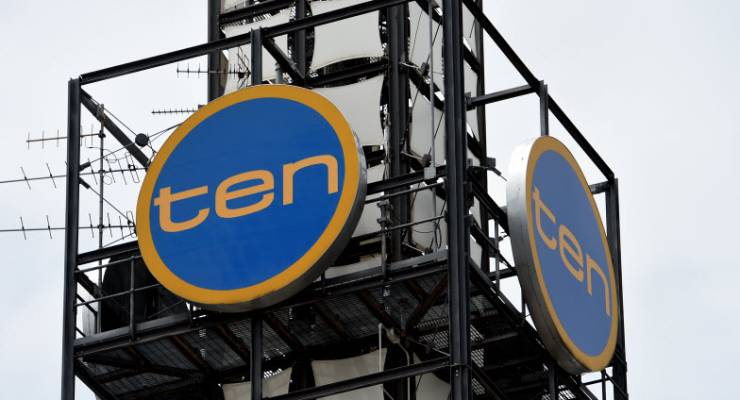
The carnage continues in the media, especially broadcast TV. Despite picking up more advertising from a better ratings performance, the Ten Network joined Seven West Media on Thursday and slashed its estimated first-half results from its core TV business, predicting a loss for both the first half of the year and possibly for the full year to the end of August.
The news raises more questions about the health and viability of the network and comes at a time when its second biggest shareholder, Foxtel, has written down the value of its near 14% stake and is under growing pressures of its own from sliding subscriber numbers, falling profits and weak cash flows. News Corp in fact wrote down the value of its 50% stake in Foxtel late last week by US$227 million, or close to A$300 million.
The news will increase pressure on the federal government and the Senate to go beyond just cuts to the licence fees — total abolition would not be a surprise as a request from the embattled sector, while changes to ownership and control provisions and the audience reach rule will also be strongly pressed on the basis that the free-to-air TV sector is dying.
Seven West Media on Wednesday reported a 91% slump in first-half net profit because of weak ad revenues and costs associated with the Olympics, the failed Presto joint venture and changes at Yahoo 7. On an operating basis, earnings were down 25%, and while Seven is looking for a slightly better second half, full-year earnings will be down 20% and its directors will have to look at possible impairments if there are no positive signs of recovery (as will Nine). Ten talked of making its own impairment tests in the wake of this shock announcement.
Now Ten has revealed an even more serious state of affairs. It says it is now looking at a loss of around $5 million for the six months to February 28, instead of the previously estimated profit of $10 to $15 million, saying in a statement to the ASX this morning:
“The Company advised that although the advertising market remained extremely short in terms of forward bookings, TEN’s television revenue had increased 1.9% in the first quarter of the 2017 financial year. TEN’s television revenue is expected to increase by approximately 1.2% for the half year to 28 February 2017 …
“As a result of the weak advertising market and increased content and other costs, TEN’s television earnings before interest, tax, depreciation and amortisation (‘EBITDA’) for the half year are expected to be $10 million to $15 million lower than the $10.1 million EBITDA profit reported for the previous corresponding period, resulting in an EBITDA loss of up to $5 million …
“A continuing decline in television advertising markets, absent any relief in television licence fees, will result in an EBITDA loss for the full year of between $20 million and $30 million.”
With James Packer looking to sell his stake (at a whopping great loss), the pressure will now be on other shareholders Bruce Gordon and his WIN group (the biggest, with 14.9%), Lachlan Murdoch and Gina Rinehart (around around 18% between them) to help finance the company if it needs more cash. It has a $250 million line of credit from the Commonwealth Bank falling due at the end of this year. The interim accounts will reveal how much has been drawn down and give us an eye as to the chances Ten has of meeting any repayments.
Ten shares fell to new all-time lows of 84.5 cents Thursday morning in the first half hour of ASX trading. That’s 8.5 cents before last year’s 10-for-one share consolidation. The shares were down 5.5% at 85.5 cents around 10.30am.








I’m quite happy for any company, that has Packer, a Murdoch and Rinehart as major shareholders, to go broke. The sooner the better.
From the Conversation, October 2014: https://theconversation.com/the-end-is-nigh-for-full-service-free-to-air-television-in-australia-28849
I can’t see the point of broadcast TV at all; we don’t watch anything now via that medium at our place. News comes via websites, and entertainment via streaming services or iTunes downloads. We don’t even watch DVDs anymore.
It might make some sense for live events such as sport, but even this could be (and is) carried live online. What need is there for a channel existing as an artificial repackager of programming, when you can just select what you want on demand?
Streaming services? You need the NBN for that and we don’t have it yet, so we’re still reliant on the ever diminishing offerings on Free to Air TV.
So, bad enough enough that they have a license to use a public property (wave spectrum) to sell crap, they now want it for free?
It has been demonstrated in laboratory conditions, over & over that the brain waves when viewing television show less activity than deep sleep.
Come back McLuhan, nothing is forgiven, the massage is the message.